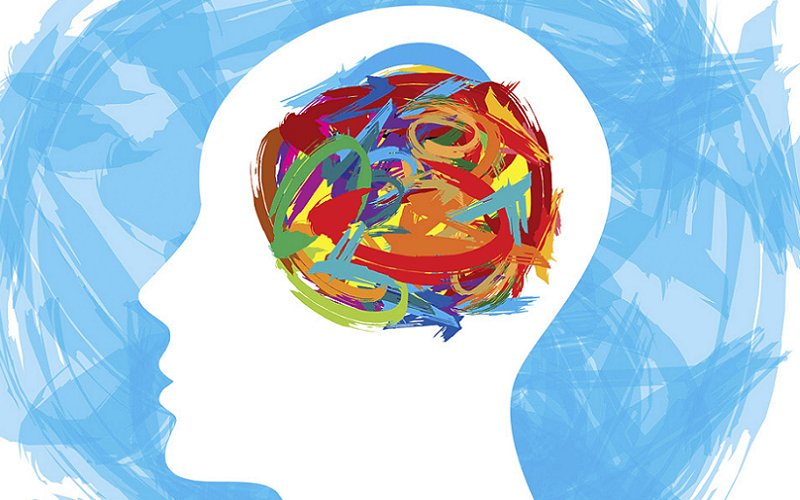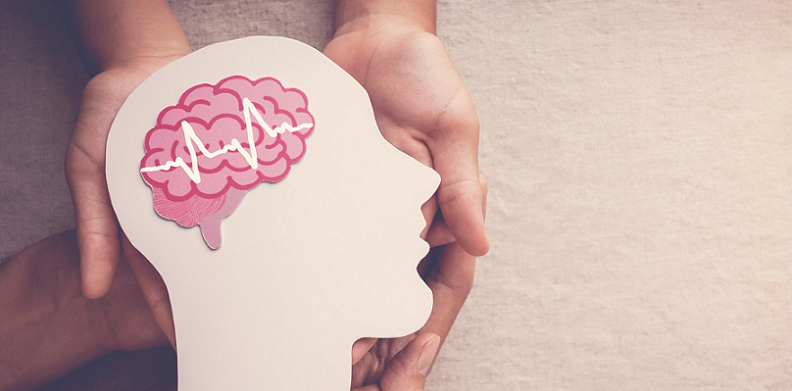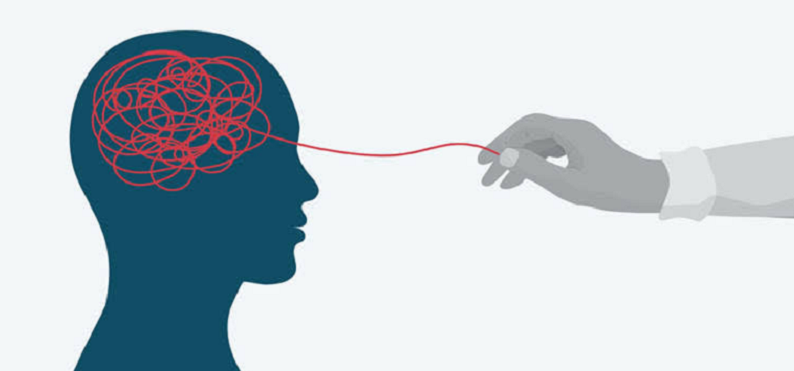
In a world where mental health often remains shrouded in mystery and misconceptions, our goal is to illuminate this vital aspect of human well-being, making it accessible and relatable to everyone. This article is crafted especially for those who may not have a background in mental health or medicine – the ‘average’ person looking to understand what mental health really means, why it’s so crucial, and how it impacts our daily lives. From breaking down the basic components of mental health to examining its profound impact on everything from personal relationships to workplace productivity, we provide a clear, concise, and informative overview.
Contents
Introduction to Mental Health
Whether you’re seeking knowledge for personal growth, supporting loved ones, or simply curious, this article is your gateway to understanding the importance of mental health in a comprehensive yet accessible way.
Definition of Mental Health
Before diving into the depths of mental health, it’s crucial to start with a fundamental understanding of what it actually is. Mental health is more than just the absence of mental disorders or disabilities. It encompasses our emotional, psychological, and social well-being. It affects how we think, feel, act, make choices, and relate to others. Good mental health isn’t merely the absence of mental health problems; it’s a state of overall well-being where an individual realizes their own potential, can cope with the normal stresses of life, can work productively, and is able to make a contribution to their community.
Importance of Mental Health Awareness
Raising awareness about mental health is paramount in today’s world, where stress, anxiety, and mental health disorders are increasingly prevalent. Understanding mental health is not just for those who struggle with mental health issues; it’s essential for everyone. It empowers us to take care of ourselves, support those around us, and contribute to a healthier, more compassionate society. By the end of this article, you will have a more profound understanding of why mental health matters and how you can play a role in promoting mental well-being in your community and beyond.
What Is Mental Health?
Understanding what mental health actually entails is the cornerstone of demystifying its concept. Often shrouded in ambiguity or limited to the scope of mental illnesses, mental health, in its truest sense, is far broader and more integral to our daily existence than many realize.
Mental Health: A Basic Understanding
Mental health refers to our cognitive, behavioral, and emotional well-being. It’s all about how we think, feel, and behave. The term ‘mental health’ is sometimes used to mean an absence of a mental disorder. However, mental health is much more than just the absence of mental illnesses. It encompasses overall psychological well-being, including the way we feel about ourselves, the quality of our relationships, and our ability to manage our feelings and cope with difficulties.
Good mental health isn’t just categorized by the absence of depression, anxiety, or other disorders. It also includes having a positive sense of well-being, functioning well in daily life, and feeling capable of managing life’s highs and lows [1].
Components of Mental Health
Delving deeper into the components of mental health helps us understand its multifaceted nature:
- Emotional Well-Being: This involves the ability to manage and express emotions that arise from everyday life. It’s not just about feeling happy or content but also being able to handle sadness, anger, or stress effectively.
- Psychological Well-Being: This aspect pertains to our self-esteem, how we perceive our abilities, and our sense of autonomy and control. It also involves the ability to pursue meaningful goals and feel fulfilled by one’s life.
- Social Well-Being: Humans are social creatures, and our relationships and interactions with others play a significant role in our mental health. Social well-being includes building and maintaining healthy relationships, feeling connected to a community, and having a sense of belonging.
Common Misconceptions About Mental Health
One of the biggest hurdles in mental health awareness is overcoming the myriad of misconceptions surrounding it. A common misconception is that mental health issues are a sign of weakness or something that people can ‘snap out of.’ Mental health conditions are complex and can be influenced by a range of factors including genetics, environment, and life experiences.
Another misconception is that children don’t experience mental health problems. The truth is, mental health issues can affect anyone, regardless of age. By dispelling these myths, we can create a more empathetic and informed society that recognizes the true nature and importance of mental health [2].

Why Mental Health Is Important
The importance of mental health cannot be overstated. It is a pivotal part of our lives that affects our thoughts, behaviors, and emotions, influencing how we handle stress, relate to others, and make choices.
Mental Health’s Impact on Daily Life
Mental health shapes our everyday experiences. When our mental health is good, we have the capacity to learn, express creativity, build strong relationships, and face life’s challenges. Conversely, poor mental health can hinder our ability to navigate daily life, affecting our decision-making, relationships, and overall satisfaction. It’s not just about the absence of mental disorders but about living a fulfilled, balanced, and productive life.
The Link Between Mental and Physical Health
Mental and physical health are deeply interconnected. Poor mental health can lead to an increased risk of developing physical health problems like heart disease, stroke, and type 2 diabetes. On the other hand, chronic physical illnesses can increase the risk of mental illness, creating a cycle that can be hard to break. This interdependence highlights the need for a holistic approach to health that treats the mind and body as interconnected parts of a whole [3].
Mental Health and Relationships
Our mental state plays a significant role in how we interact with others. It influences our capacity to form and maintain relationships, communicate effectively, and empathize with others. Good mental health allows for healthier and more fulfilling relationships, whereas struggles with mental health can lead to difficulties in personal and professional relationships.
Economic and Social Implications of Mental Health
The importance of mental health extends beyond individuals to affect entire communities and economies. Poor mental health can lead to significant economic costs due to lost productivity, absenteeism, and healthcare expenses. On a social level, it can affect community cohesion and lead to greater social isolation. Promoting mental health can, therefore, have wide-ranging benefits, improving quality of life not just for individuals but for societies as a whole.

How Mental Health Affects Various Aspects of Life
The influence of mental health extends far beyond our personal inner lives. It pervades every aspect of our existence, from our daily routines to our long-term aspirations.
Influence on Work and Productivity
Mental health plays a crucial role in our performance at work or school. Good mental health can enhance concentration, creativity, and efficiency, leading to better productivity and job satisfaction. Conversely, struggles with mental health can lead to difficulties in concentrating, decision making, and maintaining productivity. It’s not only about the individual’s performance; the collective mental health of a workforce can significantly influence the overall productivity and environment of a workplace [4].
Effect on Personal Relationships
Our interactions and relationships with others are deeply affected by our mental state. Good mental health fosters positive relationships, effective communication, and strong emotional bonds. On the flip side, when we struggle with mental health issues, it can strain relationships, causing misunderstandings, conflicts, and emotional distance. Our mental health can affect our ability to be present and supportive in relationships, impacting not just our own well-being but also that of those around us.
Mental Health in Childhood and Adolescence
Mental health is crucial at every stage of life, but it’s particularly significant during childhood and adolescence. This period lays the foundation for cognitive and emotional development. Mental health issues during these formative years can impact educational achievement, social skills, and even physical health. Early interventions and support can make a substantial difference, helping young individuals to navigate challenges and develop resilience.
Mental Health in Adult Life and Old Age
As we move through different stages of adulthood, our mental health needs and challenges can change. Adulthood brings different stressors, such as career pressures, relationship dynamics, and parenting. Managing mental health during these times is key to maintaining balance and fulfillment. In later life, issues like retirement, the loss of loved ones, and physical health changes can impact mental well-being. Attention to mental health in old age is essential for maintaining quality of life, autonomy, and a sense of purpose.

Understanding Brain Function and Mental Health
The relationship between brain function and mental health is a complex and fascinating area of study. Our brains are not just the control centers of our bodies; they are the epicenters of our mental health.
The Brain’s Role in Mental Health
The brain is integral to every aspect of mental health. It processes information from our senses, manages emotions, and forms thoughts. The way our brain functions can influence everything from our mood and personality to our ability to cope with stress. Various regions of the brain play different roles in this process, such as the amygdala in emotion regulation and the prefrontal cortex in decision-making and social behavior.
Neurochemicals and Their Impact on Mood and Behavior
Neurochemicals, or neurotransmitters, are chemicals in the brain that transmit signals from one neuron to another. They play a crucial role in regulating mood, thoughts, and behaviors. For instance, serotonin is associated with feelings of well-being and happiness, while dopamine is linked to reward and motivation. Imbalances in these chemicals can lead to mental health issues like depression and anxiety [5].
The Effect of Stress on Brain Function
Stress has a significant impact on brain function. In response to stress, the body releases hormones like cortisol, which prepares the body for a ‘fight or flight’ response. While this is beneficial in the short term, chronic stress can alter brain function, affecting areas like the hippocampus, which is vital for memory and learning. Prolonged exposure to stress hormones can lead to mental health problems such as anxiety and depression.
How Mental Health Disorders Affect the Brain
Mental health disorders are not just psychological conditions; they have biological components as well. Conditions like depression, anxiety, and schizophrenia can be linked to structural changes in the brain, chemical imbalances, or disruptions in neural pathways. Understanding these biological aspects is crucial for developing effective treatments and reducing the stigma associated with mental health disorders.
Addressing Mental Health: Approaches and Resources
Acknowledging the importance of mental health is just the first step; actively addressing it is vital for our overall well-being. There are various approaches and resources available for maintaining and improving mental health. Understanding these options can empower individuals to seek help when needed and support others in their mental health journeys.
Professional Mental Health Support
Seeking professional help is a key step in addressing mental health issues. This can include psychologists, psychiatrists, counselors, and therapists who offer a range of therapies and treatments. These professionals can provide diagnosis, therapy, medication management, and personalized support. It’s important to remember that seeking help is a sign of strength, not weakness. Mental health professionals are equipped to provide the support and guidance needed for mental health challenges [6].
Self-Care and Lifestyle Adjustments
In addition to professional help, self-care is an important aspect of maintaining mental health. This includes lifestyle choices that can enhance mental well-being, such as regular physical activity, a balanced diet, adequate sleep, and managing stress. Mindfulness practices, meditation, and relaxation techniques can also play a significant role in maintaining mental health. Creating a balance between work, leisure, and social activities is crucial for a healthy mental state.
Community Resources and Support Groups
Community resources and support groups provide invaluable support for those dealing with mental health issues. These can include community mental health centers, support groups for specific conditions, and online forums. Engaging with others who understand and share similar experiences can be comforting and empowering. These groups provide a platform for sharing strategies, offering support, and reducing the sense of isolation often associated with mental health challenges.
The Role of Technology in Mental Health Care
Technology has become increasingly important in mental health care. This includes teletherapy services, mental health apps, and online resources. These technological tools can make mental health care more accessible and convenient, especially for those who might have barriers to accessing traditional mental health services. They offer a range of options, from guided meditation to connecting with therapists remotely, making mental health support more accessible than ever before.
References
[1] What is Mental Health?
[2] About Mental Health
[3] Caring for Your Mental Health
[4] What is Mental Illness?
[5] The Importance of Mental Health
[6] Mental health is important to overall health, and heart disease prevention and treatment

